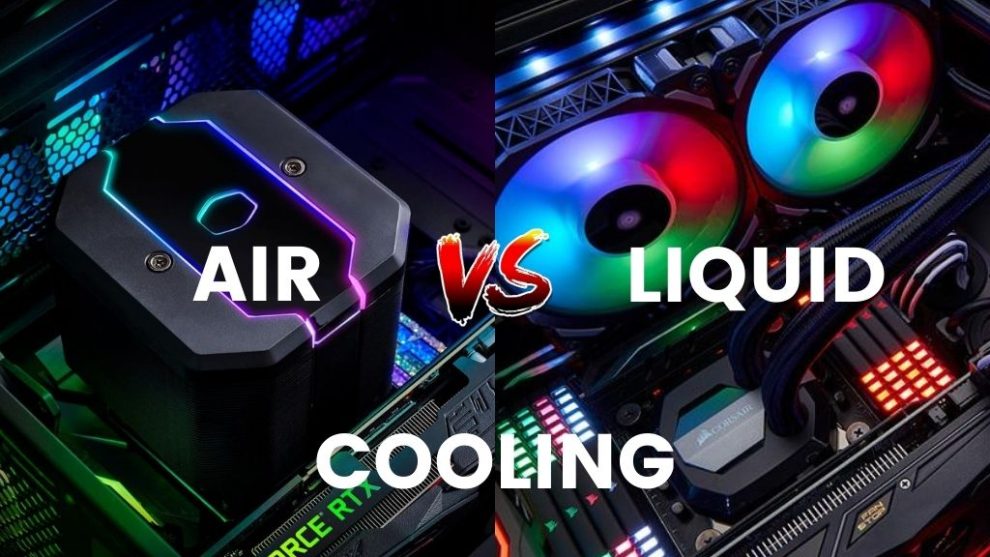Keeping your PC cool is crucial for maintaining stability and maximizing performance. But when it comes to cooling methods, the battle between liquid cooling and air cooling rages on. Both offer distinct advantages and disadvantages, and the optimal choice depends on your specific needs and budget. Let’s dive into the ring and analyze each contender:
Air Cooling: The Familiar Bruiser
Pros:
- Affordable: Generally the cheaper option, with coolers ranging from simple fans to robust tower coolers.
- Simple installation: Easy to set up and requires minimal maintenance, perfect for beginners.
- Wide compatibility: Fits most PC cases and components without additional modifications.
- Quiet operation: Newer fan designs offer quieter performance compared to older models.
Cons:
- Limited cooling performance: May struggle with high-end CPUs or overclocking, leading to thermal throttling.
- Bulkier design: Large heatsinks can take up significant space within your case, impacting airflow and aesthetics.
- Dust accumulation: Requires regular cleaning of fans and heatsinks to maintain optimal performance.
Liquid Cooling: The Sleek Champion
Pros:
- Superior cooling performance: Effectively removes heat from high-performance CPUs and overclocked systems, preventing thermal throttling.
- Compact design: Allows for better airflow within the case and offers more flexibility for cable management.
- Aesthetic appeal: Customizable tubing and lighting options can enhance the visual appeal of your build.
- Quieter operation: Efficient heat transfer eliminates the need for high-RPM fans, resulting in quieter operation.
Cons:
- Higher cost: More expensive than air coolers, with costs varying depending on complexity and components.
- Complex installation: Requires careful planning, component compatibility checks, and potential modifications to your case.
- Maintenance concerns: Leaks can damage components, and regular upkeep (fluid top-up, cleaning) is crucial.
- Limited upgradeability: Expanding the loop for additional components can be complex and expensive.
The Verdict: It’s All About Your Priorities
Choosing between air and liquid cooling depends on your individual needs:
- For budget-conscious users or those with basic requirements, air cooling remains a reliable and affordable option.
- If you prioritize superior cooling performance, quieter operation, and a sleek aesthetic, then liquid cooling might be worth the investment.
Remember: Consider your budget, technical expertise, desired performance level, and aesthetic preferences before making your choice. Ultimately, the best cooling solution is the one that keeps your PC running cool and quiet, and aligns with your individual needs and budget.
Bonus Round: Hybrid Cooling
Combining air and liquid cooling can offer a balanced approach, especially for high-end systems. Consider using an air cooler for your GPU and liquid cooling for your CPU to strike a balance between performance, cost, and complexity.
I hope this comprehensive analysis helps you choose the optimal cooling solution for your PC!
















Add Comment